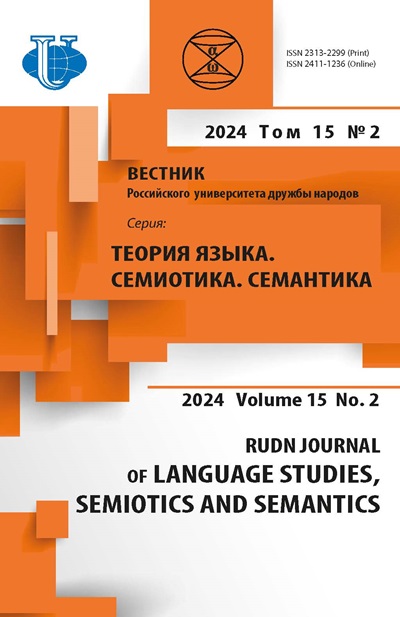Search
Issue
Title
Authors
|
Orlova T.G. |
|
Istiyanto B., Putri K.S., Valerii L.M., Adelina M.S., Anter V.K. |
|
Ding L., Lysyakova M.V. |
|
Filyasova Y.A. |
|
Budiltseva M.B., Novikova N.S. |
|
Maksudov U.O., Khamidova N.S., Aminjonova R.H., Sharipova M.A. |
|
Tokpayeva L.S., Kuzembayeva G.A., Spulber D.P. |
|
Mudrovskaya A.M., Temirgazina Z.K., Aselderova R.O. |
|
Demidova T.V., Barov S.A., Soloveva T.M. |
|
Yusupova S.M. |
|
Lian J., Lazareva O.V., Lazareva O.S. |
|
Boldyrev N.N., Fedyaeva E.V. |
|
Sinelnikova L.N. |
|
Krasnykh V.V. |
|
Zaitseva I.P. |
|
Orlova T.G. |
|
Kornakova E.S. |
|
Filyasova Y.A. |
|
Orlova T.G. |
|
Reunova E.V. |
|
El-Zawawy A.M. |
|
Zimareva O.L., Pesina S.A. |
|
Filyasova Y.A. |
|
Kozlova L.Y. |
|
Matytsina I.V. |
|
Mukhortov D.S., Zhovner E.A. |
|
Mukhortov D.S. |
|
Bobrova E.D. |
|
Buyevich A.A. |
|
Orlova T.G., Nikulina E.F. |
|
Omelchenko V.V. |
|
Vetrova K.O., Mishlanova S.L. |
|
Novospasskaya N.V., Raadraniriana A.M., Lazareva O.V. |
|
Shkolnikova O.J., Dementieva A.V. |
|
Shevchenko N.M. |
|
Sinyachkin V.P. |
|
Belyakov M.V. |
|
Artyukhova N.S., Saykina O.S., Solovyeva A.A. |
|
Maksimenko O.I. |
|
Preobrazhensky S.Y. |
|
Ganiyeva I.Y. |
|
Dr Aruna K Gamage -. |
|
Komarova L.Y. |
|
Orlova T.G., Nikulina E.F. |
|
Shliakhova G.I. |
|
Valentinova O.I., Rybakov M.A. |
|
Ganiyeva I.Y. |
|
Polyakova G.M. |
|
Kakzanova E.M. |
|
Muratova Y.Y. |
|
Ivanov E.E., Lomakina O.V., Petrushevskaya J.A. |
|
Chichina M.O. |
|
Souadkia Mounya -. |
|
Medvedeva T.S. |
|
Orlova T.G. |
|
Terekhova T.M. |
|
Babkina V.A. |
|
Solopova O.A., Naumova K.A. |
|
Abaeva E.S. |
|
Mamedova K. |
|
Reunova E.V. |
|
Orekhova D.V. |
|
Man Sia -. |
|
Bobrova E.D. |
|
Filyasova Y.A. |
|
Orlova T.G., Kolosova A.A., Medvedev Y.S., Barov S.A. |
|
Zhamaletdinova E.K. |
|
Smirnova E.V. |
|
Ngamsaengpruyek Usane -. |
|
Omelchenko V.V. |
|
Vekshin G.V., Gertzev M.N., Loskot Y.E. |
|
Ustinova O.V. |
|
Ivanova I.G., Egoshina R.A. |
|
Skoromolova Y.V. |
|
Budiltseva M.В., Denisova A.Р. |
|
Faje Fatu Diop -. |
1 - 76 of 76 Items
Search tips:
- Search terms are case-insensitive
- Common words are ignored
- By default only articles containing all terms in the query are returned (i.e., AND is implied)
- Combine multiple words with OR to find articles containing either term; e.g., education OR research
- Use parentheses to create more complex queries; e.g., archive ((journal OR conference) NOT theses)
- Search for an exact phrase by putting it in quotes; e.g., "open access publishing"
- Exclude a word by prefixing it with - or NOT; e.g. online -politics or online NOT politics
- Use * in a term as a wildcard to match any sequence of characters; e.g., soci* morality would match documents containing "sociological" or "societal"









